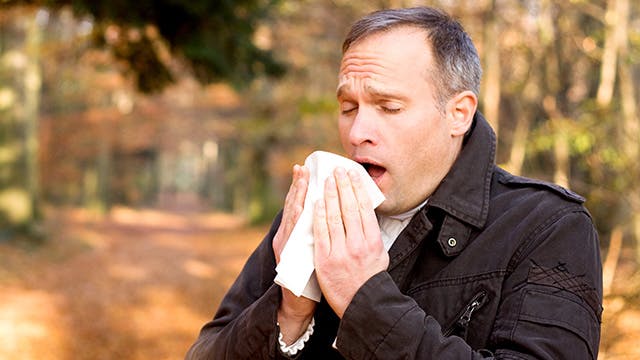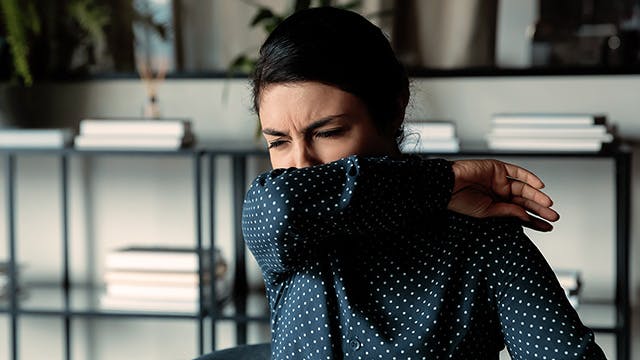Common Causes of Sinus Congestion
Though experiencing sinus congestion can be unpleasant, it is important to understand what the common causes of sinus congestion are to potentially avoid and treat it. Conditions that may cause sinus congestion are:
- Infections such as the common cold, flu, or a sinus infection
- Exposure to dust, pollen, and animal dander that may cause allergies
- Changes in temperature and humidity (i.e. cold, dry winters, and even forced air heating)
- Tobacco smoke3
Some people who experience sinus congestion may feel like they’re having a very intense migraine. This is known as a sinus headache.4 Similar to any other kind of sinus congestion, you may feel pain, pressure, or fullness in your cheeks or forehead, but with a sinus headache you can experience throbbing in your head.4 One of the main differences between common sinus congestion and sinus headaches is that sinus headaches are more likely for people with a personal or family history of migraines or headaches.4
How Do You Clear Sinus Congestion
When it comes to available treatments, look for behind-the-counter medicines that contain acetaminophen, to relieve fever and pain, and pseudoephedrine, an effective decongestant to help you breathe. Daytime Theraflu-D Flu Relief Max Strength + Nasal Decongestion Syrup can help you get back to your best self, fast. Sometimes antibiotics may be prescribed by your doctor to help treat bacterial cases of sinus infection.5
However, for those experiencing more subtle symptoms of sinus congestion, there are self-help steps you can take to relieve symptoms. For example, you can moisturize your sinuses by taking a hot shower and breathing in the warm, moist air to help mucus drain and relieve pain.5 You can also rinse out your nasal passages by using a specially designed squeeze bottle or neti pot.5 One of the most important tips to remember to help with any congestion, or just when you’re feeling sick, is to rest. With enough rest, you can help your body fight off inflammation and recover more quickly.5
You should contact a doctor if you notice that sinus congestion includes any discharge that is green, yellow or consistently bloody.3 Furthermore, if you experience a fever with sinus congestion, you may have a type of infection that requires immediate care from your doctor.



